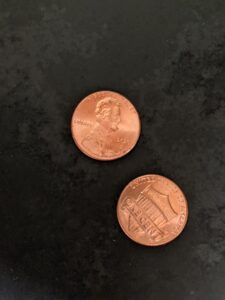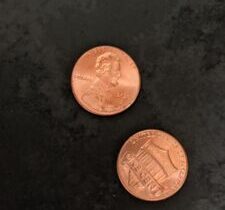Absolute Trust in the Lord
“There is only a handful of flour in my jar and a little oil in my jug … when we have eaten it, we shall die.”
 The prophet Elijah and a widow star in today’s reading from the book of Kings (1 Kg 17:10-16). Elijah has fled the wrath of Jezebel and Ahab, traveling to the city of Zarephath. Jezebel, as you will recall, has sworn to kill Elijah for his opposition to the decision of Ahab to worship the gods of her people and encourage the people of his kingdom to do the same. One would think Elijah would travel far from any lands connected to Jezebel. But the Lord sent him to the land of Sidon, ruled by Jezebel’s father! (Ever heard the phrase, the Lord’s ways are mysterious?)
The prophet Elijah and a widow star in today’s reading from the book of Kings (1 Kg 17:10-16). Elijah has fled the wrath of Jezebel and Ahab, traveling to the city of Zarephath. Jezebel, as you will recall, has sworn to kill Elijah for his opposition to the decision of Ahab to worship the gods of her people and encourage the people of his kingdom to do the same. One would think Elijah would travel far from any lands connected to Jezebel. But the Lord sent him to the land of Sidon, ruled by Jezebel’s father! (Ever heard the phrase, the Lord’s ways are mysterious?)
Elijah arrives in Zaraphath, hungry, tired, and thirsty. A woman is gathering sticks there. Elijah asks her for a cup of water. When she starts off to get it for him, he asks for something more, a bit of something to eat. It is at this point that her situation becomes clear. She is a widow and has a child. In those days, there was no social safety net. No one was there to help her. Her husband was gone. His family was no longer responsible for her care. Her family had long since given up any responsibility for her. She was on her own. There was no way for her to go out and get a job to support herself. Many women in her situation had no option but to become prostitutes. The lives of these women were short and hard. Their children had no future either. They were left to become beggars, servants, thieves, slaves, or worse!
“Do not be afraid,” says Elijah. These words are so often heard in the scriptures. The Lord will take care of it! He assures her that there will be enough flour and oil for him to have a little cake/bread. The flour and oil will not run out until the rains come again. (This was a time of drought and supplies of food were scarce, making her situation even more precarious.)
We remember this woman because, though she was not a Jew, did not worship or know the Lord, and did not know this man who had come asking for her help, she took a chance and trusted him. She made the bread for him and hosted him in her home through the entire time he lived in Zaraphath, until it became time for him to return to his own land. The jar of flour did not go empty, nor did the jug of oil run out for the entire year they lived together.
Another widow caught the attention of Jesus in the temple in Jerusalem. On this Thirty-second Sunday in Ordinary Time, we hear the story often known as the widow’s mite. (Mk 12:38-44) As the story begins, Jesus was teaching in the temple. He warned those listening to him to beware of the scribes.
Last week we heard the story of the scribe who was praised by Jesus as a man not far from the Kingdom of God. That scribe had heard Jesus teaching when the widow in today’s story gave her gift to the temple. He asked Jesus the question about the greatest commandment and praised Jesus for his answer to the question. But this story came first.
The scribes to whom Jesus was referring here were educated men who served as recorders and lawyers. They knew the law and were careful to observe the letter of the law. Jesus did not criticize their knowledge or their position as specialists. However, he was incensed at the behavior of those who demanded high fees for their services as lawyers and justified the price by their apparent holiness. They recited elaborate prayers and accepted honors from all, then cheated widows and the poor.
Watching the people come and go in the temple, Jesus observed that many well-to-do people came and put large amounts of money into the collection boxes, the treasury. Checks were not used in those days, nor paper money or credit cards, so it was obvious when a large amount of money was being deposited. Then a poor widow came along. She gave two very small coins. These were something like giving two pennies. Not much to offer in comparison with the gifts given by most people. Certainly not enough to warrant attention or praise from bystanders. Yet Jesus noticed and praised her. He noted that those who were giving large gifts were not making any real sacrifice or putting any real trust in God. What they gave was what was left over after all their needs had been met. The woman, on the other hand, gave all that she had. There was nothing held back. She was now totally dependent on God. Her gift was much larger than that of the others, despite being such a small amount in absolute terms. With the psalmist, she could sing, “Praise the Lord, my soul!” The Lord who keeps faith, securing justice for the oppressed and food for the hungry (Ps 146): in this Lord she trusted totally.
Jesus sat in the temple and watched. He taught there. He prayed there. Sacrifices had been offered there on his behalf. That day, he would not likely have thought of himself as a High Priest. He was a carpenter who had received a call from God to tell everyone that the Kingdom of God was at hand. He was to bring good news to poor and rich alike. The Kingdom of God is at hand. Be good to each other. After his death and resurrection, the community reflected on what had just happened and tried to explain it in terms of their religious tradition. (Heb 9:24-28) They knew the High Priest offered sacrifices for himself and all the people. Day after day, year after year, sacrifices were offered in the temple. Yet Jesus had given himself and been raised up by the Father. Jesus had offered the perfect sacrifice to reconcile God and humans, giving himself as the faithful witness to God’s Kingdom and Love. This sacrifice would never need to be repeated. Jesus had promised to return to them. They awaited his coming eagerly.
It’s taken a lot more years than the early followers of Jesus thought it would take before his second coming. We’re not there yet, over 2,000 years later. Yet the stories of these two widows and the reflections of the psalmist and the author of the Letter to the Hebrews still speak to us of the call to absolute trust in God’s love and protection. There are times when we too must simply trust that enough material goods will come along to provide for what is needed, especially when we are asked to take precious time away from “earning a living” to help someone who is unable to fend for themselves. Or when we are asked to share the little bit extra we’ve set aside for something we want but don’t absolutely need. We don’t always get exactly what we might think we need, or when we think we must have it, but we get what is really needed, when it is needed, and not a second before then. I like to think of it as “God’s Just-In-Time Financing.” When the chips are down, something or someone comes through with the particular thing that is most needed.
Today I pray for the grace to continue to trust the Lord and the grace to be generous with my time and treasure, just as the two widows so long ago trusted in the Lord’s protection and care.
Read More









